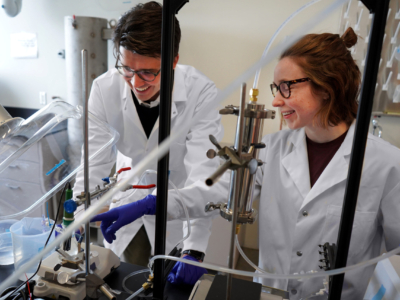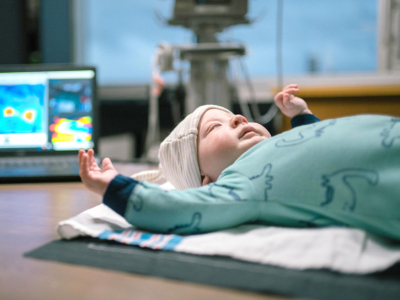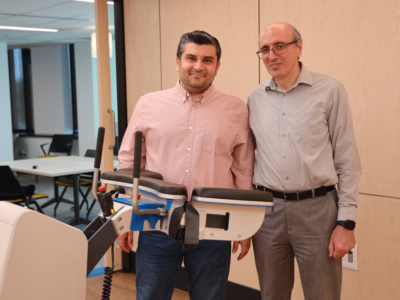Carleton University researcher Robert Langlois from the Department of Mechanical and Aerospace Engineering, in partnership with Adrian Chan and James Green from Systems and Computer Engineering, and neonatologist Dr. Stephanie Redpath from the University of Ottawa, will receive more than $522,000 over three years as part of the Collaborative Health Research Projects (CHRP) to support an investigation into improving infant safety during medical transportation.
“This CHRP funding enables Carleton to continue its leading research in biomedical engineering, benefiting the health and wellness of all Canadians,” said Rafik Goubran, vice-president (Research and International). “This innovative Carleton-led project will improve the safety and care given to the youngest Canadians.”
Each year, thousands of newborns in Canada are transported by air or ground ambulance to receive specialized medical care. These infants are often premature and especially vulnerable during transport. Vibration exposure may contribute to the risk of serious long-term consequences, including brain injury. Although specialized equipment is used, vibration levels experienced by infants and contributing factors are not well understood.
“Our goal is to increase the safety of infant transport by better understanding and reducing vibration exposure,” said Langlois. “This project will allow us to propose new methods to reduce vibration exposure and improve the equipment for transporting fragile infants. We will measure vibrations in many transport scenarios, including within hospitals, as well as in ground ambulances, helicopters and airplanes.”
The research results will help develop test equipment and procedures for evaluating transport equipment. The project will lead to new tools for planning routes that minimize vibration and for monitoring patient vibration during transport.
This research partnership brings together expertise in pediatrics and engineering to study solutions to this serious problem. In addition to Carleton engineers, the team includes the Children’s Hospital of Eastern Ontario’s (CHEO’s) clinical engineers and transport team and physicians from both CHEO in Ottawa and SickKids in Toronto. The physician partners are members of both national and provincial committees tasked with providing advice and recommendations to improve safety, quality of care and the experience of these especially-vulnerable patient populations. The National Research Council of Canada, Ottawa Paramedic Services, Ornge and Stryker are also contributing to the project.
The CHRP is a joint initiative between the Canadian Institutes of Health Research (CIHR), the Natural Sciences and Engineering Research Council of Canada (NSERC) and the Social Sciences and Humanities Research Council of Canada (SSHRC).
CHRP grants support focused, interdisciplinary, collaborative research projects that are innovative, with a strong focus on knowledge translation, and lead to health benefits for Canadians, more effective health services and/or economic development in health-related areas.
Monday, July 27, 2020 in Biomedical Engineering, Industry Collaboration, Interdisciplinary, Mechanical and Aerospace Engineering, Research, Systems and Computer Engineering
Share: Twitter, Facebook



